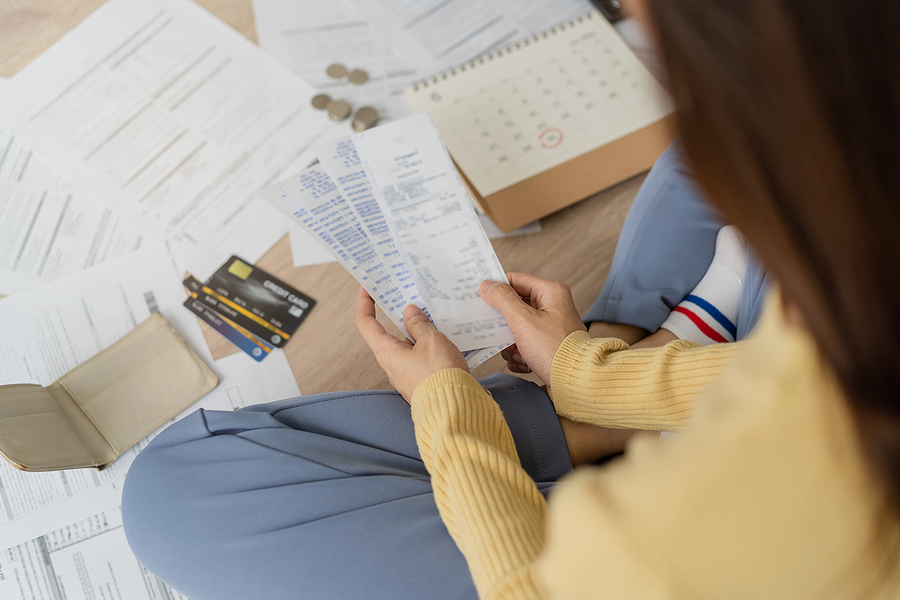Interest rates are one of the most critical factors when it comes to financial planning and borrowing. Whether you are buying a home, financing a car, or borrowing through a credit card, interest rates play a significant role. When it comes to credit card debt, higher interest rates can spell trouble for borrowers.
Credit card debt is a persistent problem for many Americans, with a total credit card balance of $986 billion in the first quarter of 2023, according to the latest consumer debt data from the Federal Reserve Bank of New York. Unchanged from the fourth quarter of 2022, this balance is the highest since the New York Fed began tracking in 1999.
Even before the COVID-19 pandemic struck, credit card debt was on the rise, and the economic downturn because of the pandemic only increased the use of credit cards. With 2023’s high-interest rates on credit cards, some borrowers find themselves in a cycle of debt that is not easy to break.
Dangers of Low Introductory Rates
Interest rates on credit cards can vary widely, depending on several factors, including the type of credit card, the credit score of the borrower, and the institution providing the credit card.
Many institutions offer a low introductory rate for their credit card to lure borrowers looking to consolidate debt and get a better interest rate. However, after the introductory period is over, interest rates can skyrocket, leaving borrowers with a monthly payment that is even more difficult to manage.
If you are in this situation, you are not alone. You had good intentions to pay off your debt with the low-interest rate but found it challenging to do. Now the new higher interest rate has made the problem worse.
An increase in interest rates mean more of your monthly payment goes toward interest and less towards paying down the principal balance. This leads to a never-ending cycle of paying interest without making much progress toward paying off the balance.
If you are already struggling with credit card debt, an increase in interest rates can be devastating. At Kain + Henehan, a leading bankruptcy law firm in Minnesota, we understand that struggle. Late payments, missed payments and defaults all hurt your credit scores, making it harder to obtain loans in the future.
Impact of High-Interest Rates on Monthly Payments
When interest rates are high, the amount of money you owe in interest increases. For example, suppose you have a credit card balance of $3,000 with an interest rate of 20%. In that case, you’ll pay $1.64 daily or $598.60 per year in interest charges alone. If you only make the minimum monthly payment, you will pay more in interest, and it will take longer to pay off your balance.
Your credit card statement includes a minimum payment warning which gives you an estimate of how much you likely will pay, including interest, to pay off your bill in three years, and that is assuming you have no new additional charges.
Aside from making it harder to pay off debt, high-interest rates can also impact your monthly budget and cash flow. Higher debt means you have less disposable income to use or save. It will be harder to save money for emergencies or other goals, and it can limit your ability to make larger purchases or investments.
Impact of High-Interest Rates on Your Overall Balance
High-interest rates can significantly impact the overall balance of credit cards. If you’re carrying a balance on your credit cards, a higher interest rate could make it even more difficult to pay off your debt. The higher the interest rate, the more you’ll end up paying over time, which means that you end up paying more than the initial amount borrowed. Your credit card balance increases, leaving you with more debt.
Clearly, a high-interest rate makes it more challenging to keep up with your monthly payments. If you’re struggling to make ends meet, you may fall further behind on your payments, which could lead to late fees and other penalties.
Schedule a Consultation with Kain + Henehan
If you’re struggling to meet your financial obligations, including paying off high-interest credit card debt, it may be worth talking with us. We will lay out your options and make sure you understand what the best solution is for you. We have helped hundreds of clients file Chapter 7 and Chapter 13 cases. We have seen every twist and turn that can come with filing for bankruptcy and use our experience to guide clients in getting control of their finances.
Facing the prospects of bankruptcy can be scary enough, so we make sure meeting with us is not. We are here to make you comfortable from the very first phone call. Please contact Kain + Henehan by calling (612) 438-8006 or filling out the online form to learn more about bankruptcy from an experienced Minnesota bankruptcy lawyer.

